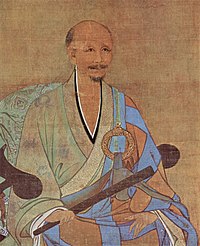Writ of Passage
The Writ of Passage was a core feature of the Dawpruva system in the Minghua valley, acting as the main vehicle of revenue for the mountain princes. It consisted of a token, normally in the form of a paper letter or a coin, which was granted by a mountain prince to merchants who wished to pass through his area of control in return for a sum of money. Once granted, the writ of passage was valid until its official revocation. This made them highly valuable items, often being passed down within merchant families. While the sale of Writs of Passage was discouraged and even illegal in some areas, it was widely practiced. Counterfeiting was also widespread, leading to the introduction of detailed registers of licensed traders in major Dawpruvas. This in turn led to rises in smuggling and corruption, which grew especially during the late Confederal era. The need for a seperate class of clerks led to the formation of the Red Robe Society in the Minghua valley.
